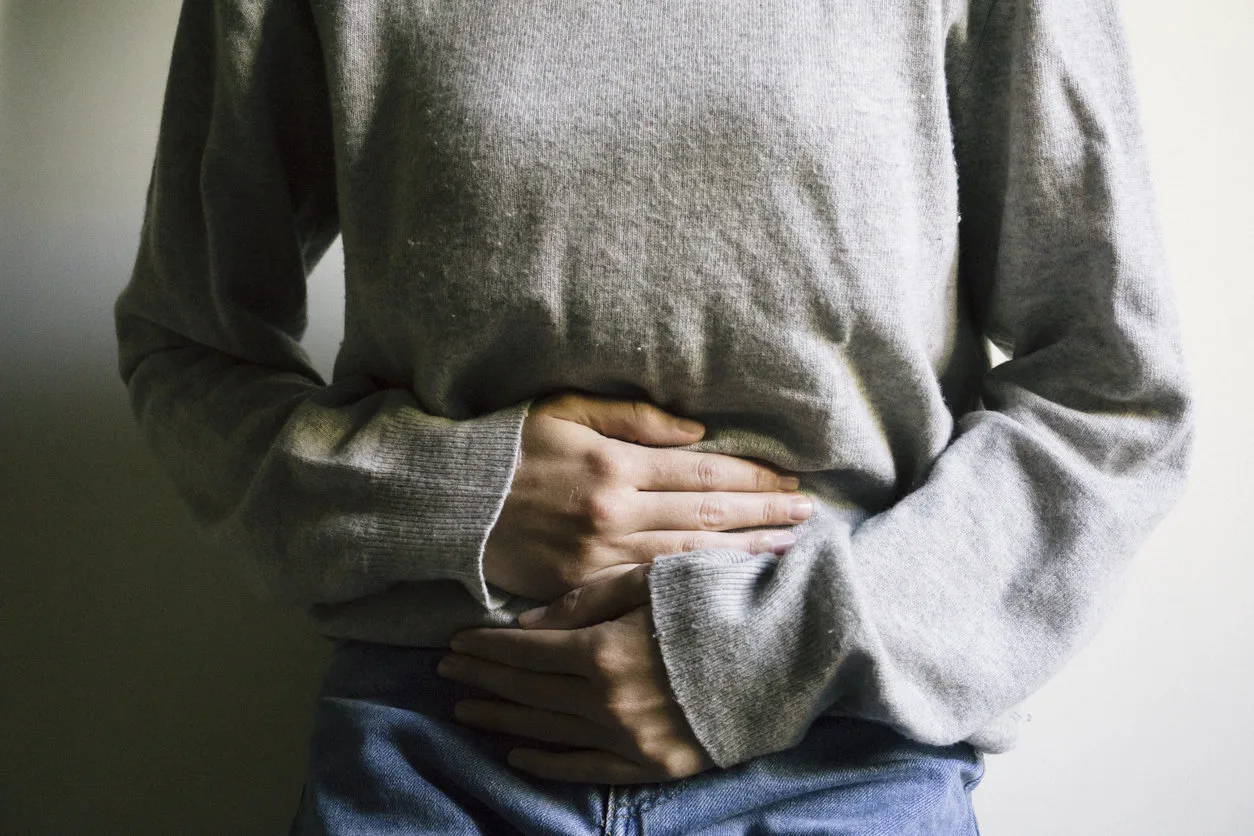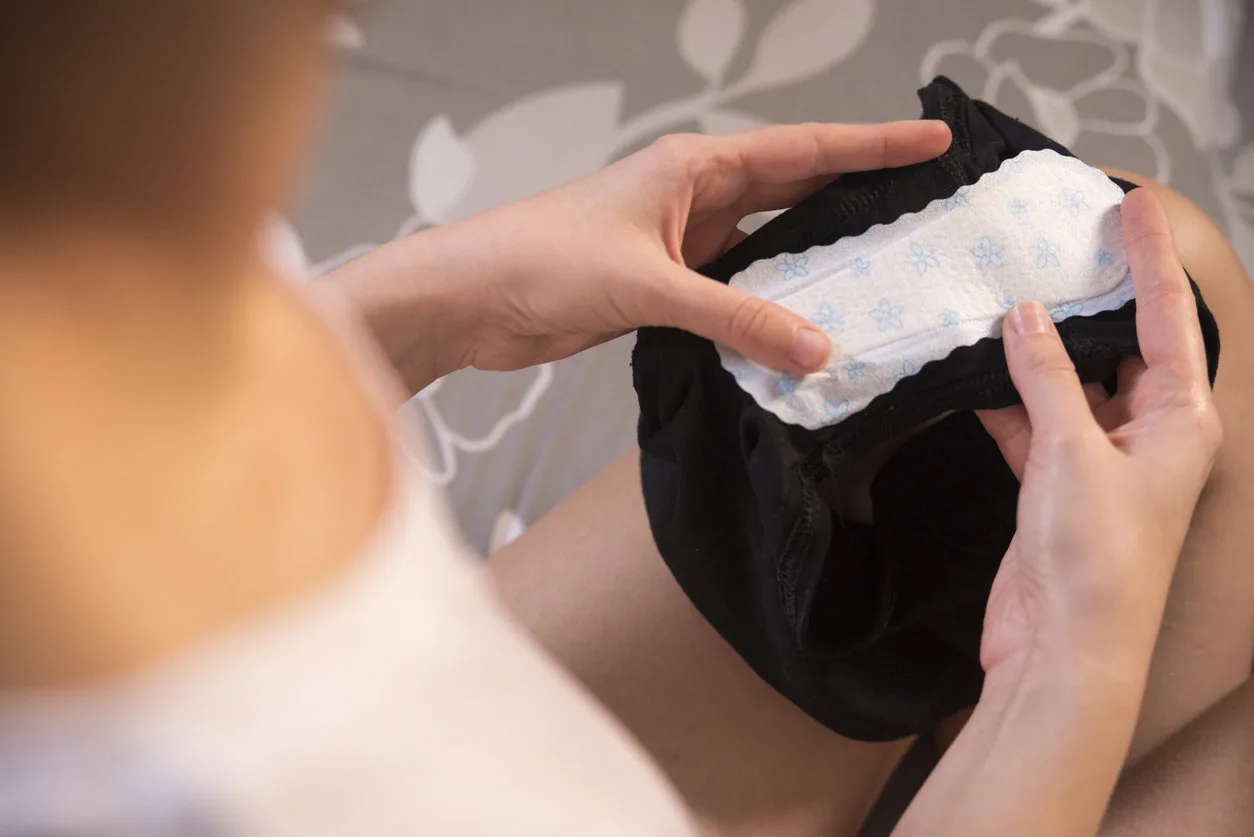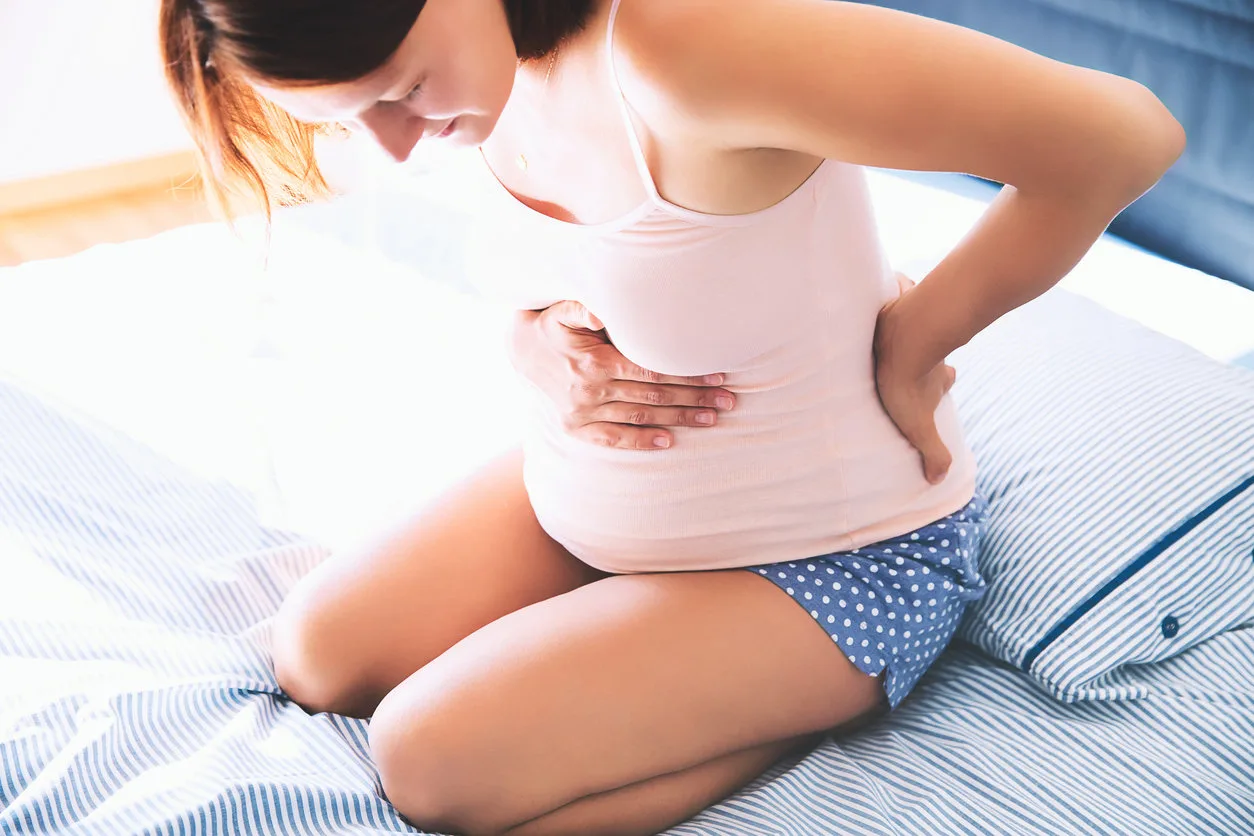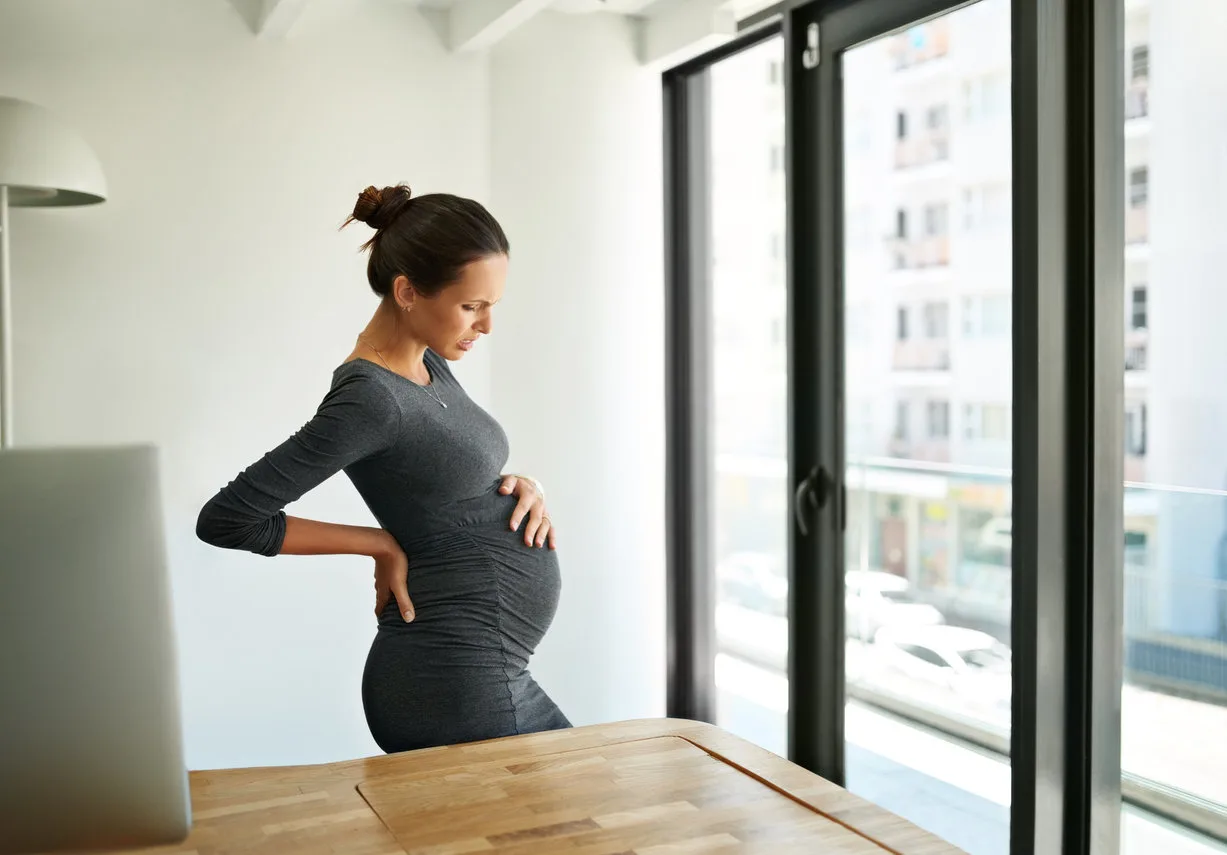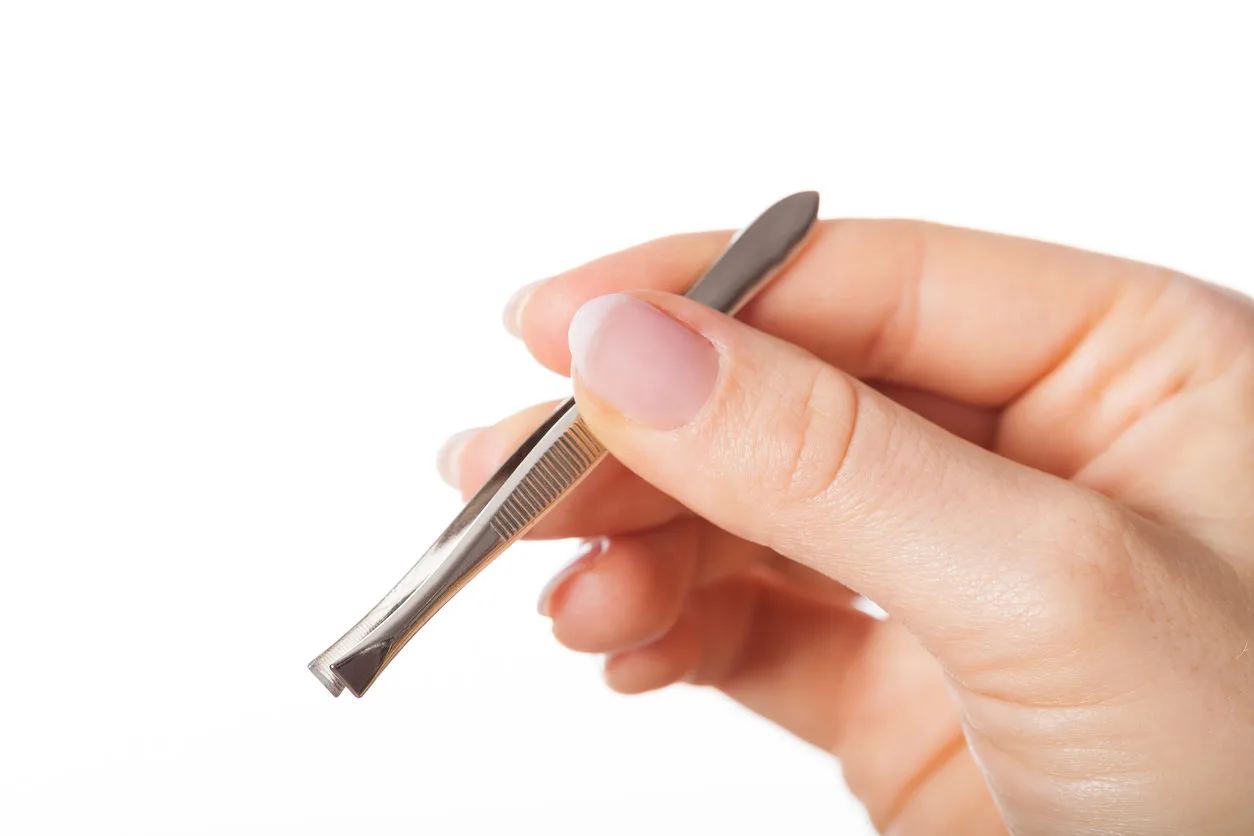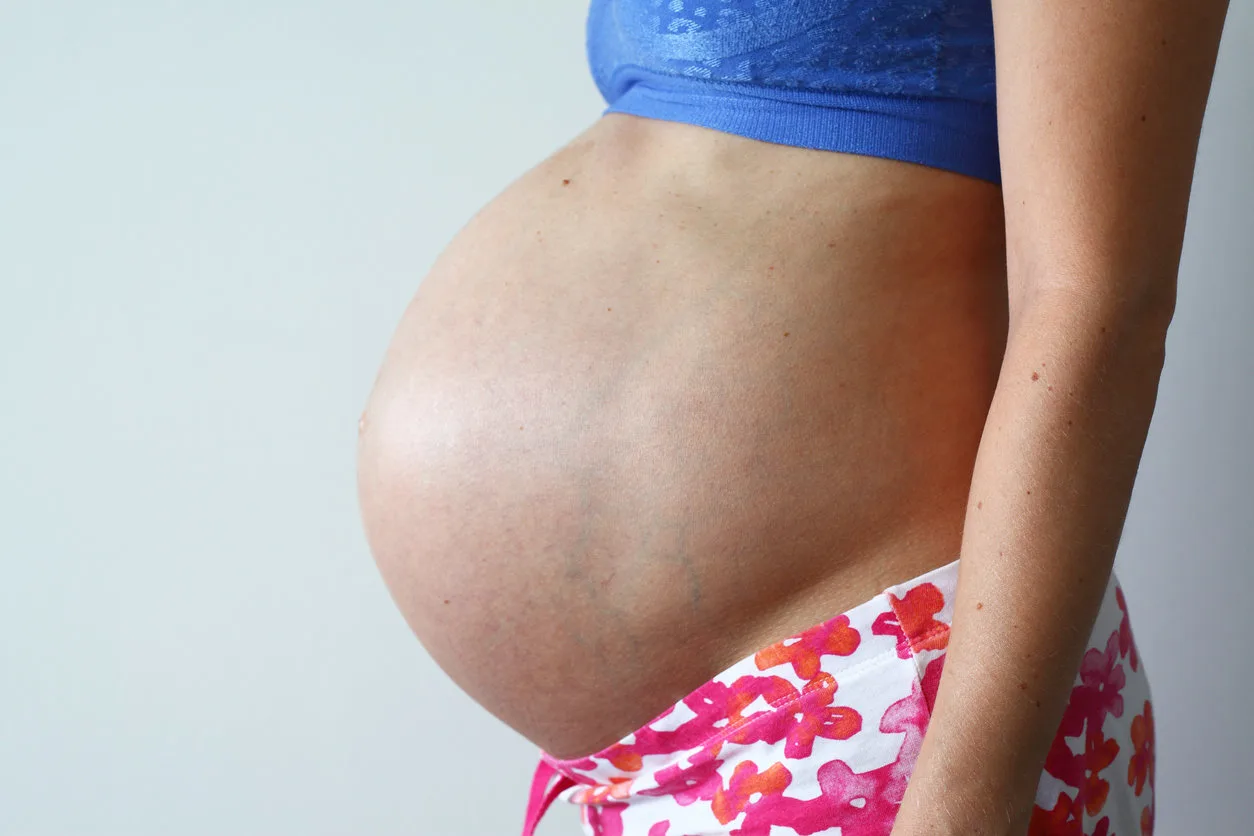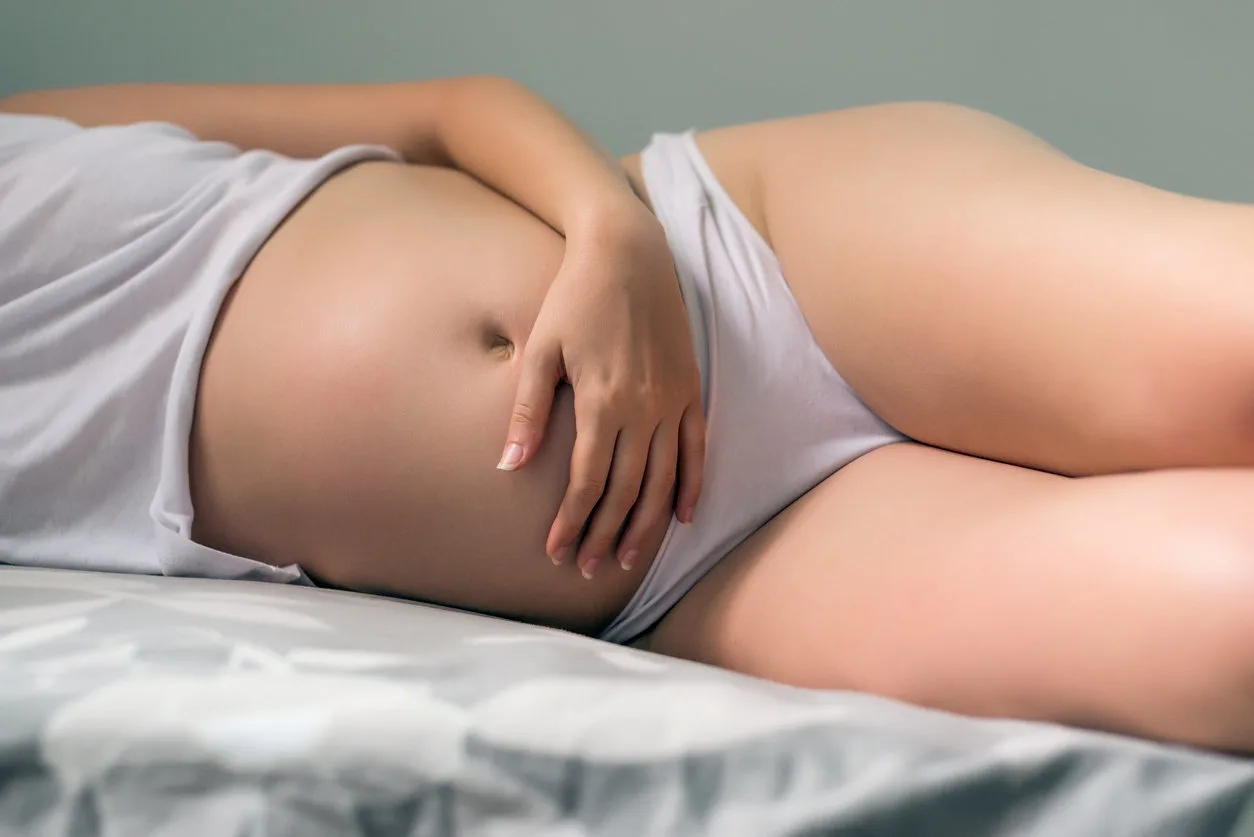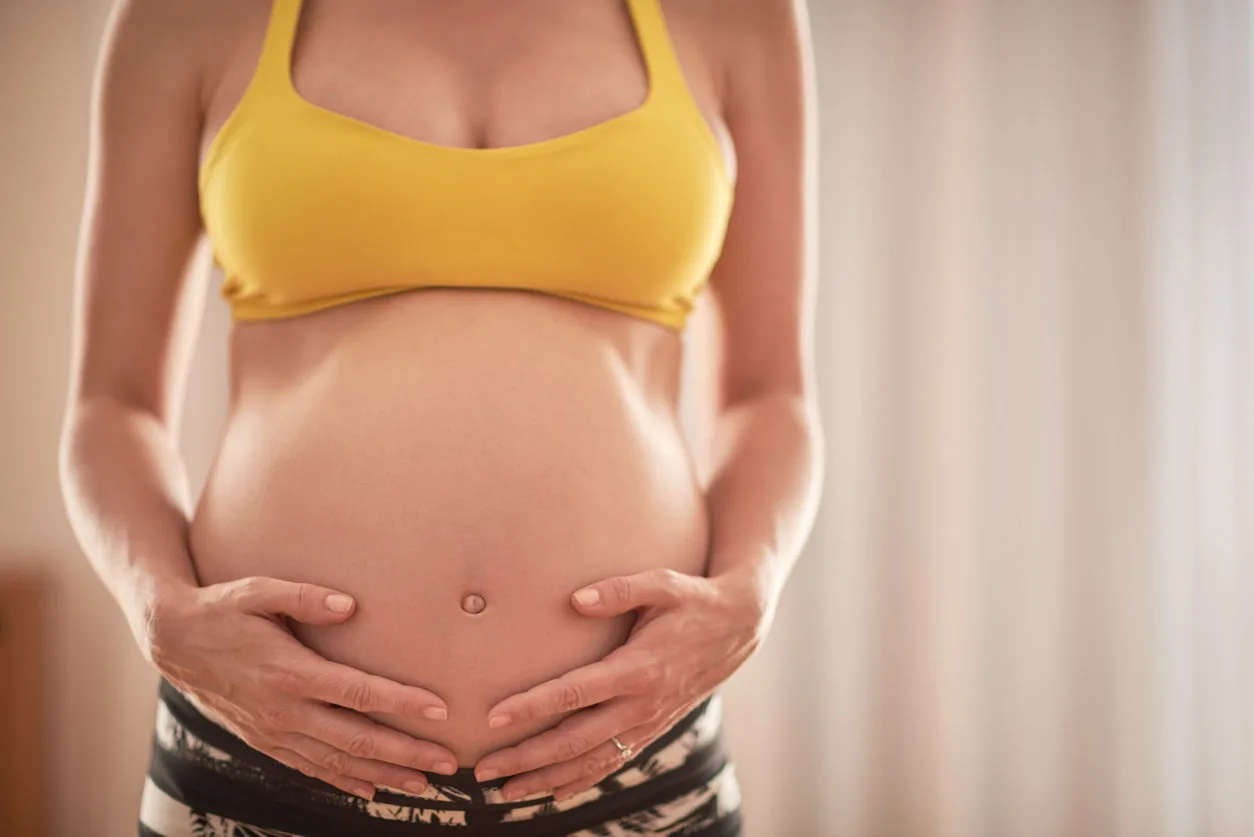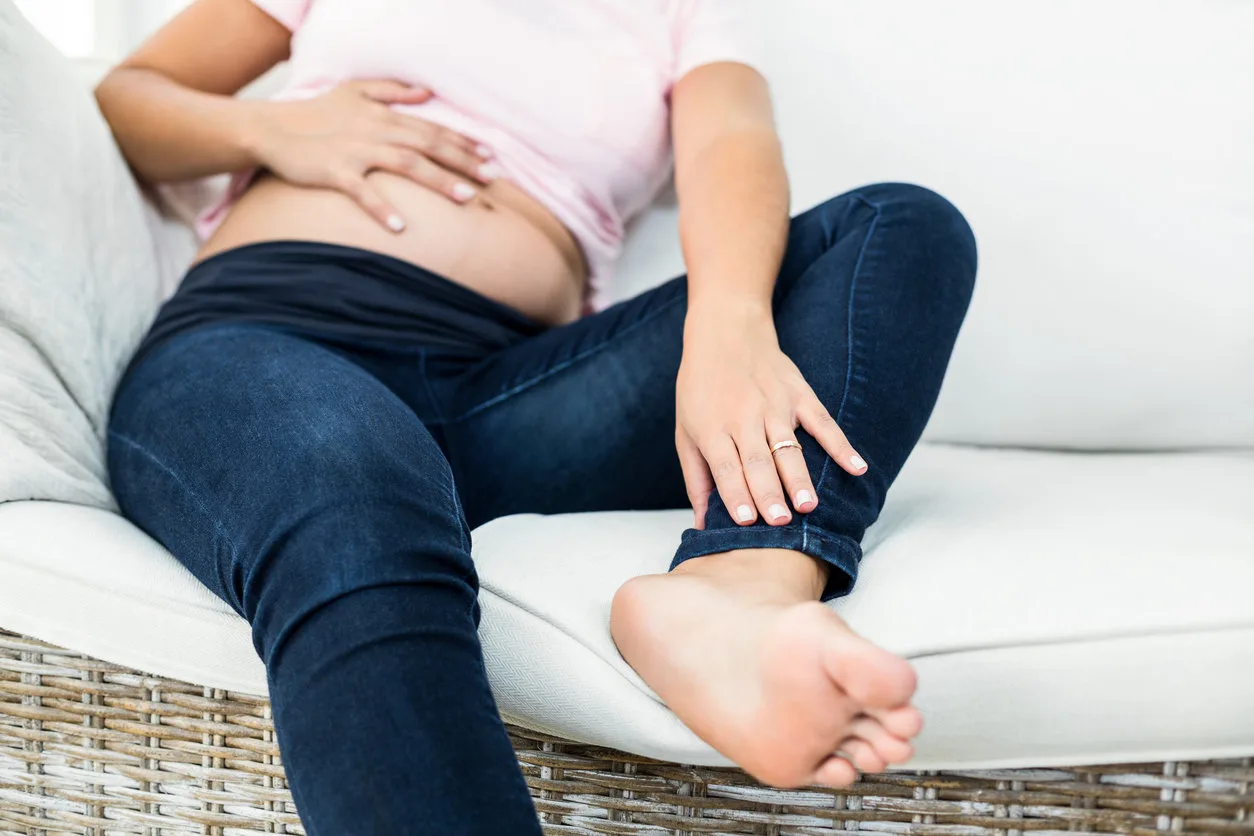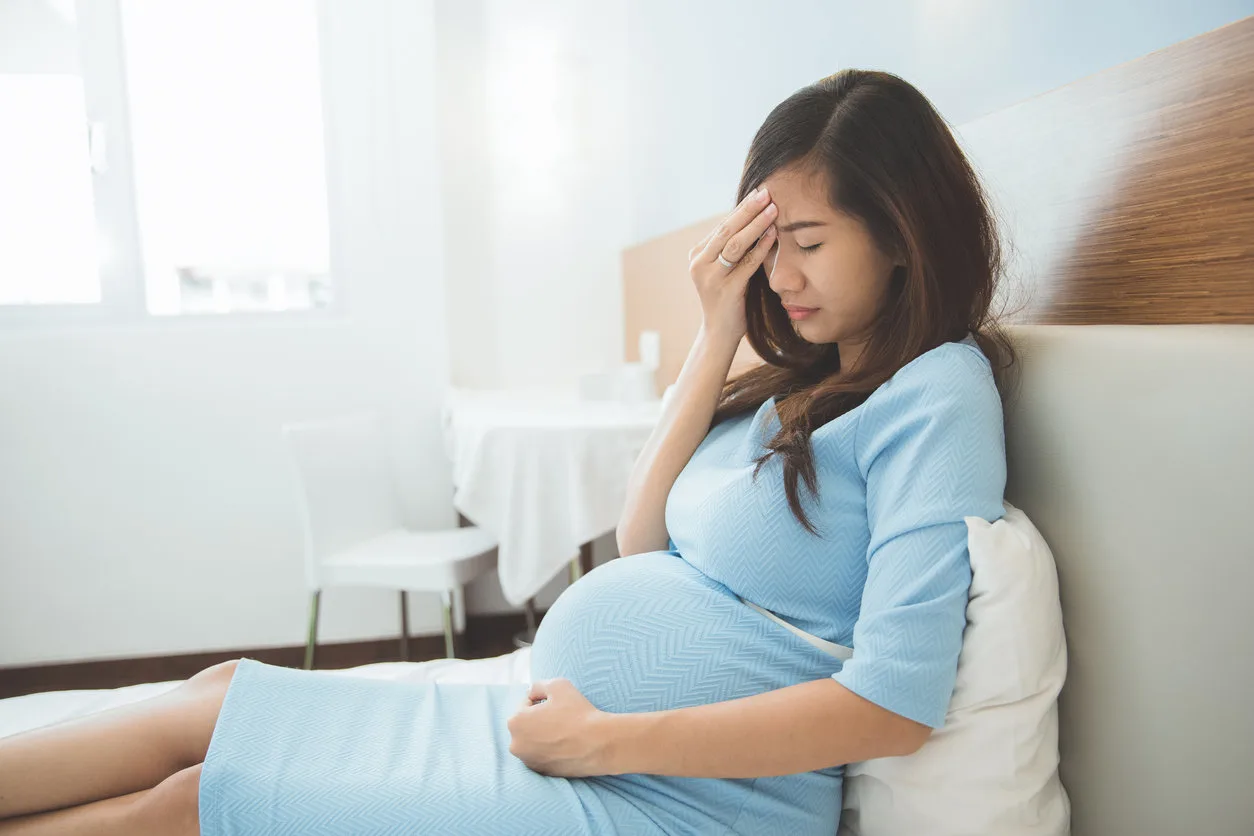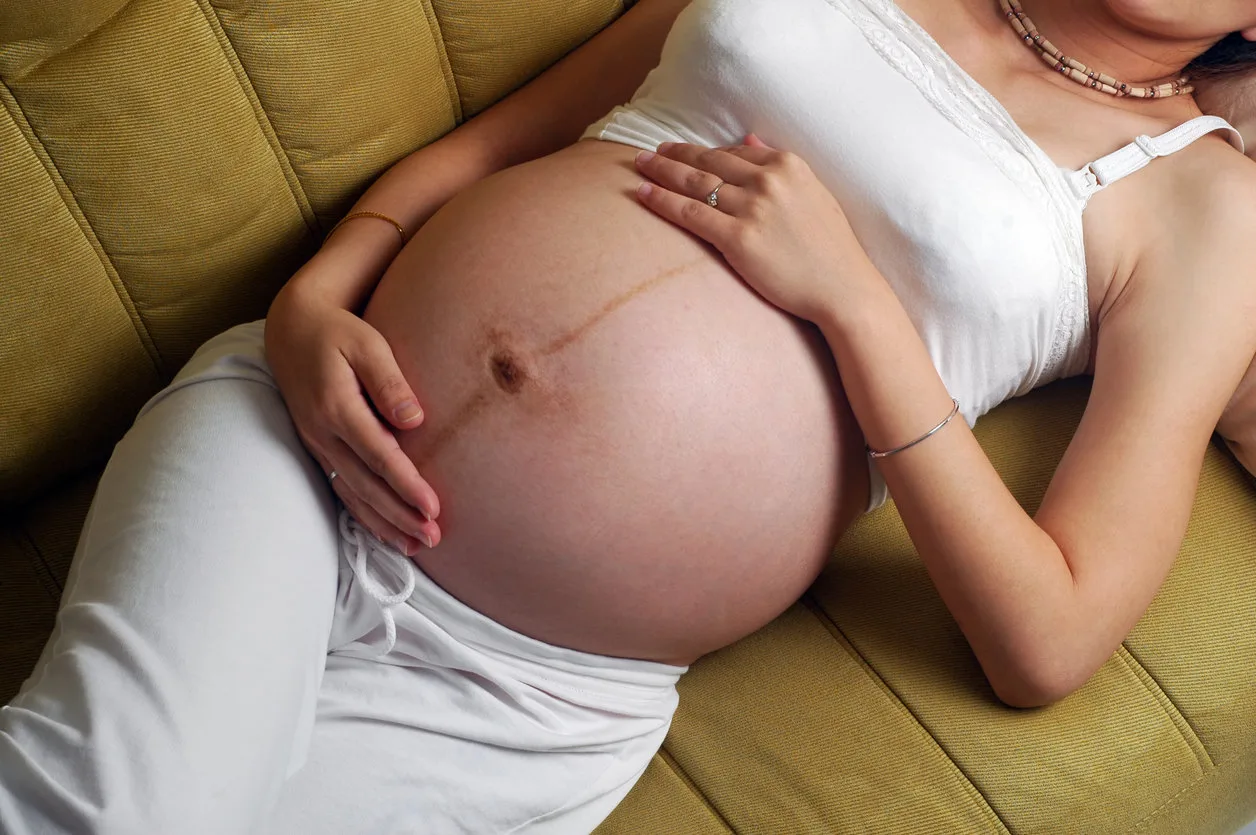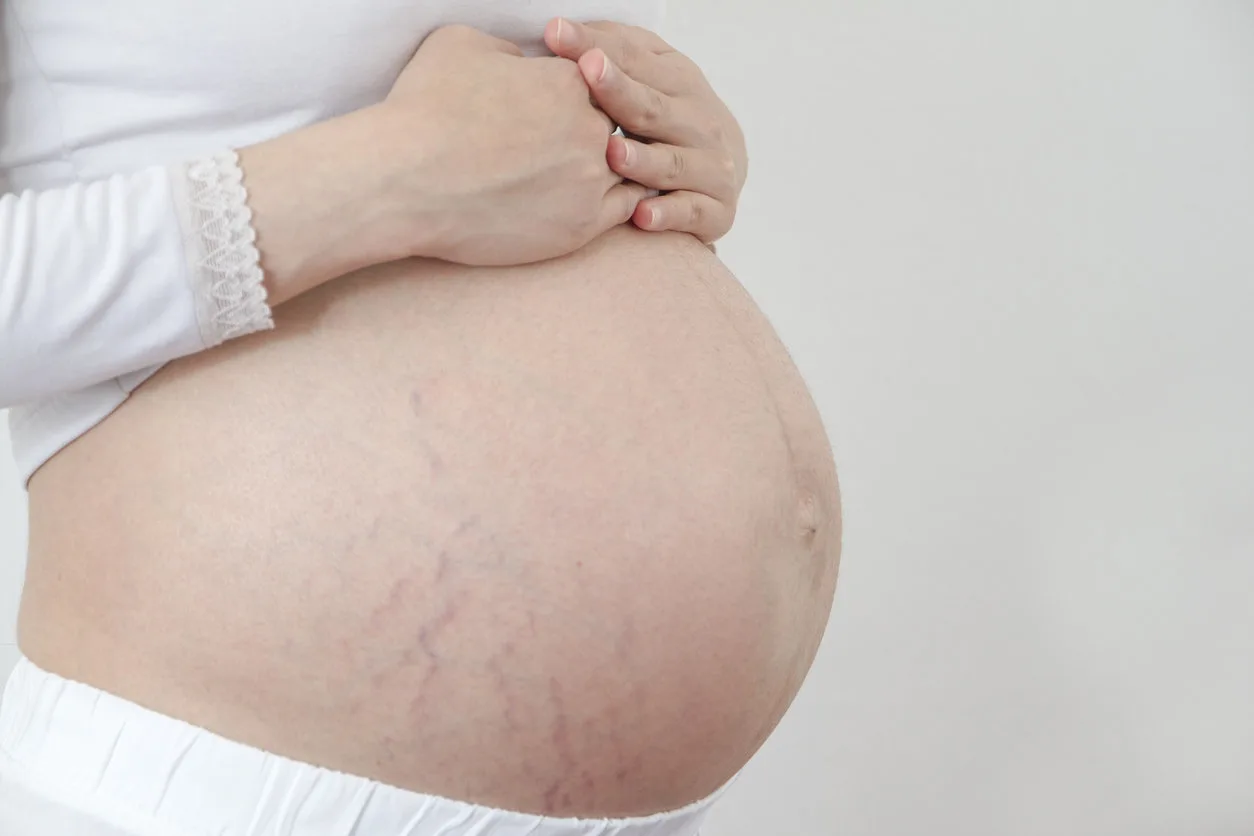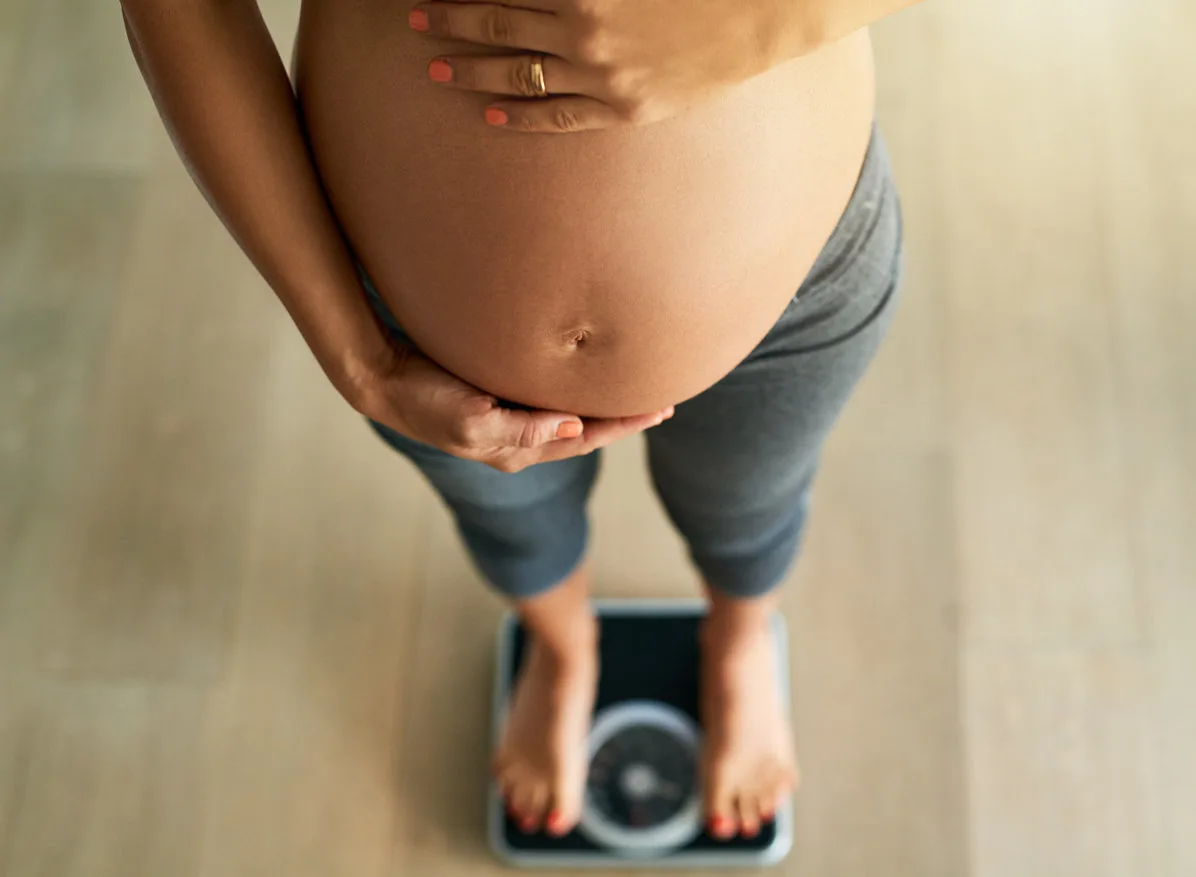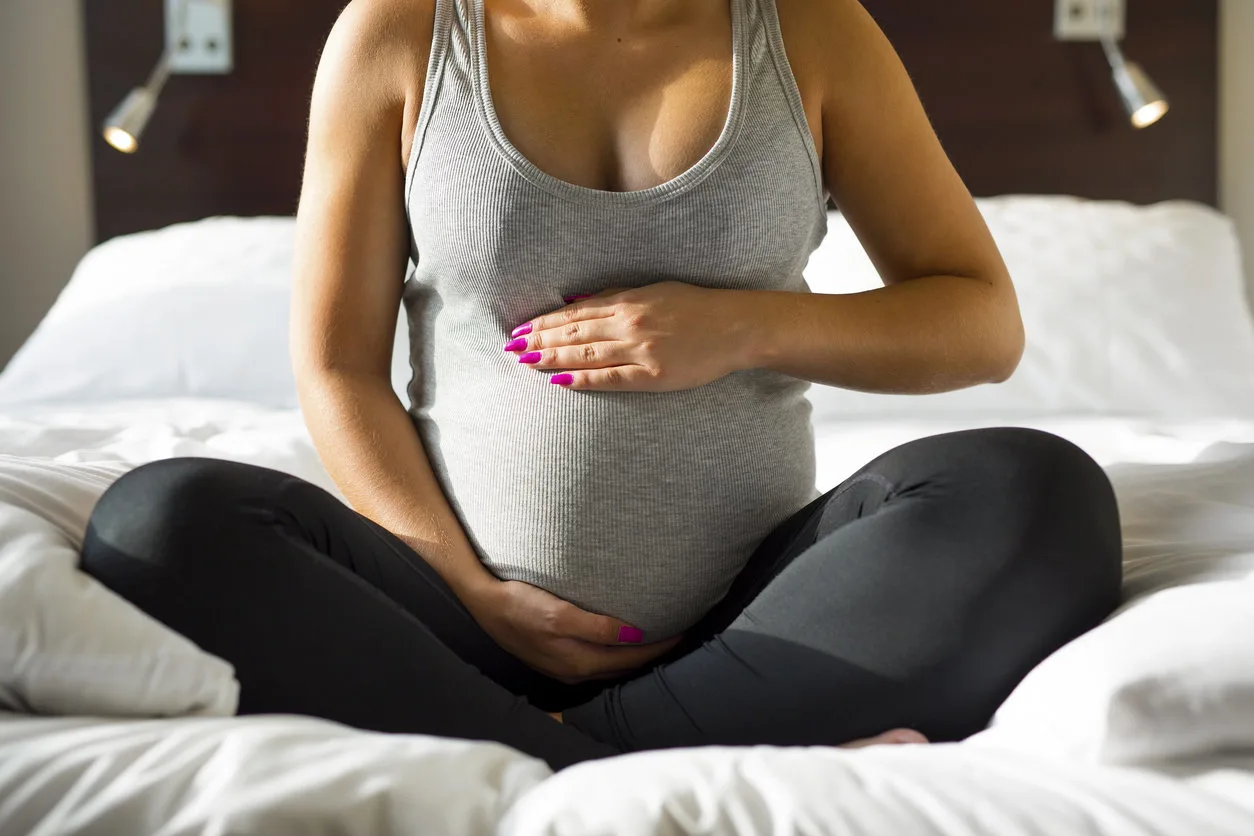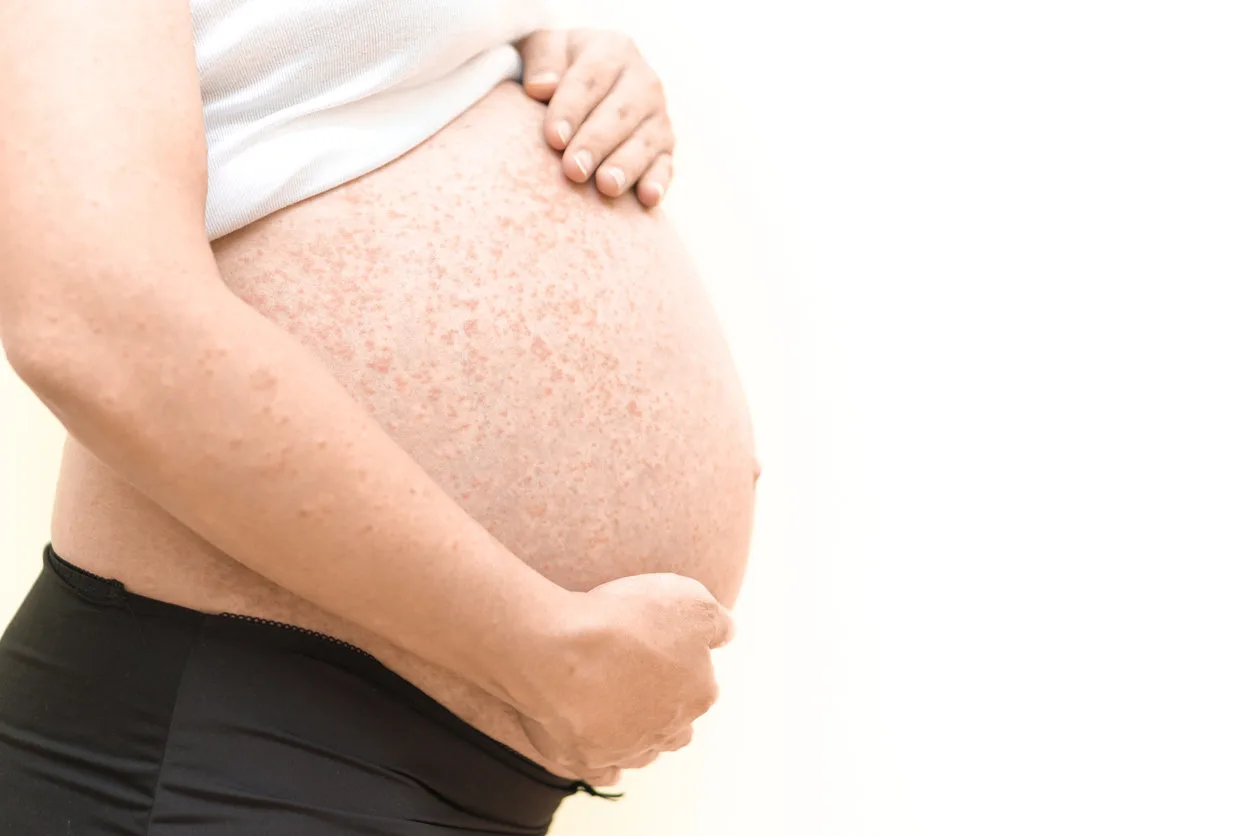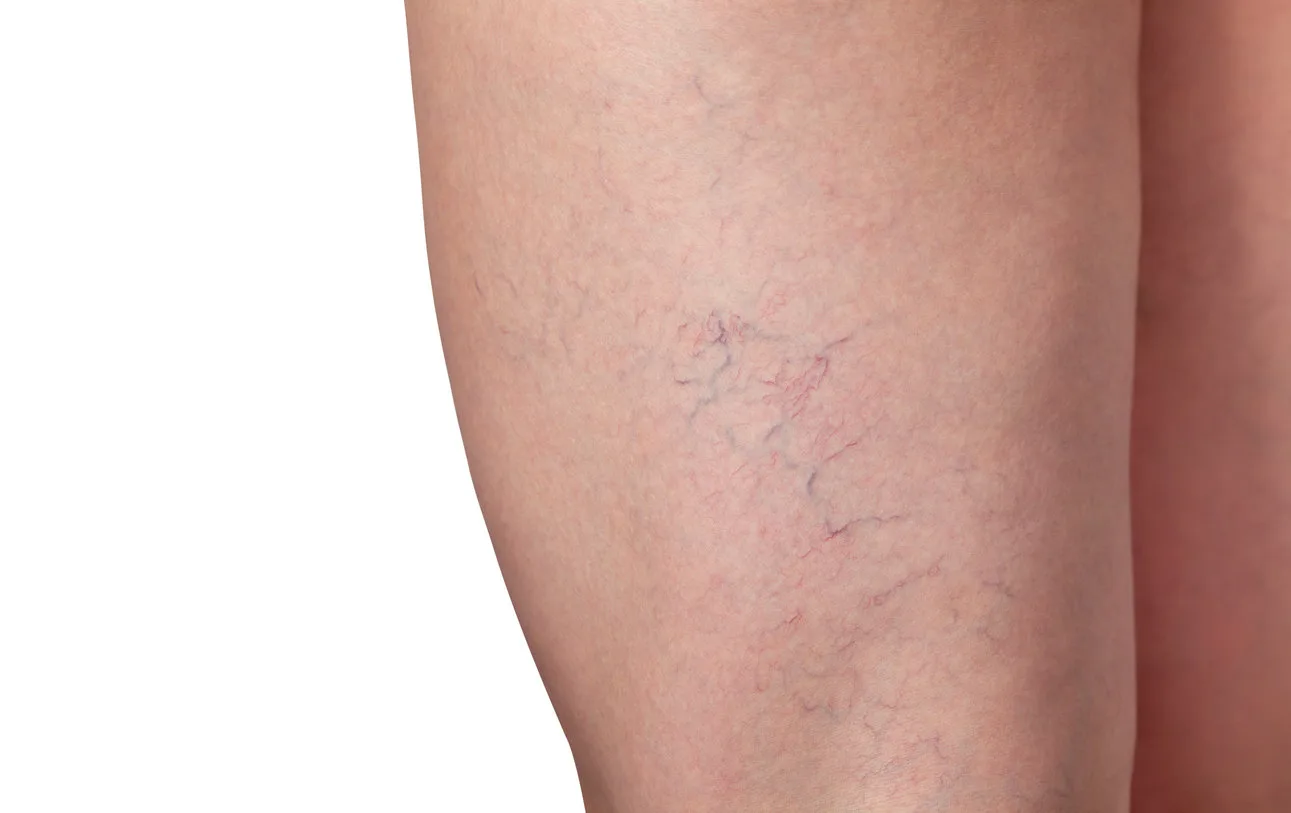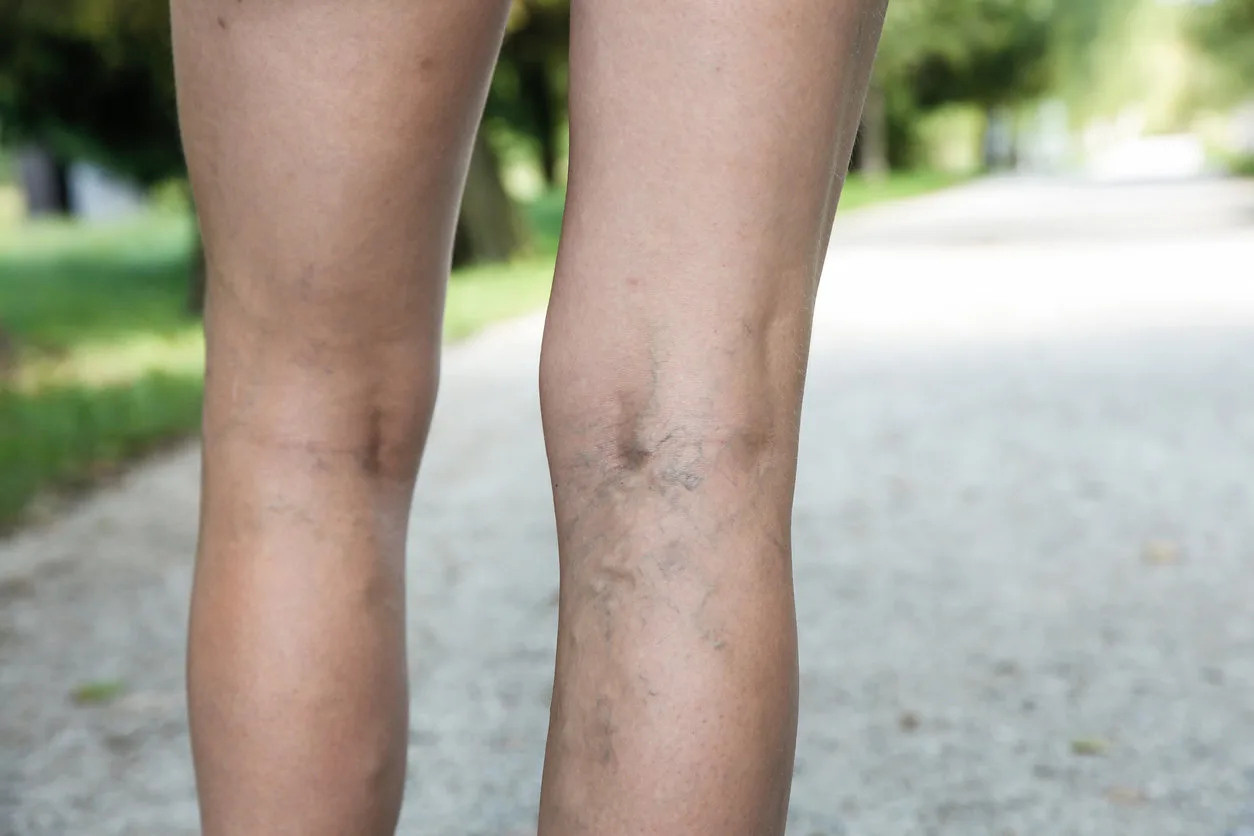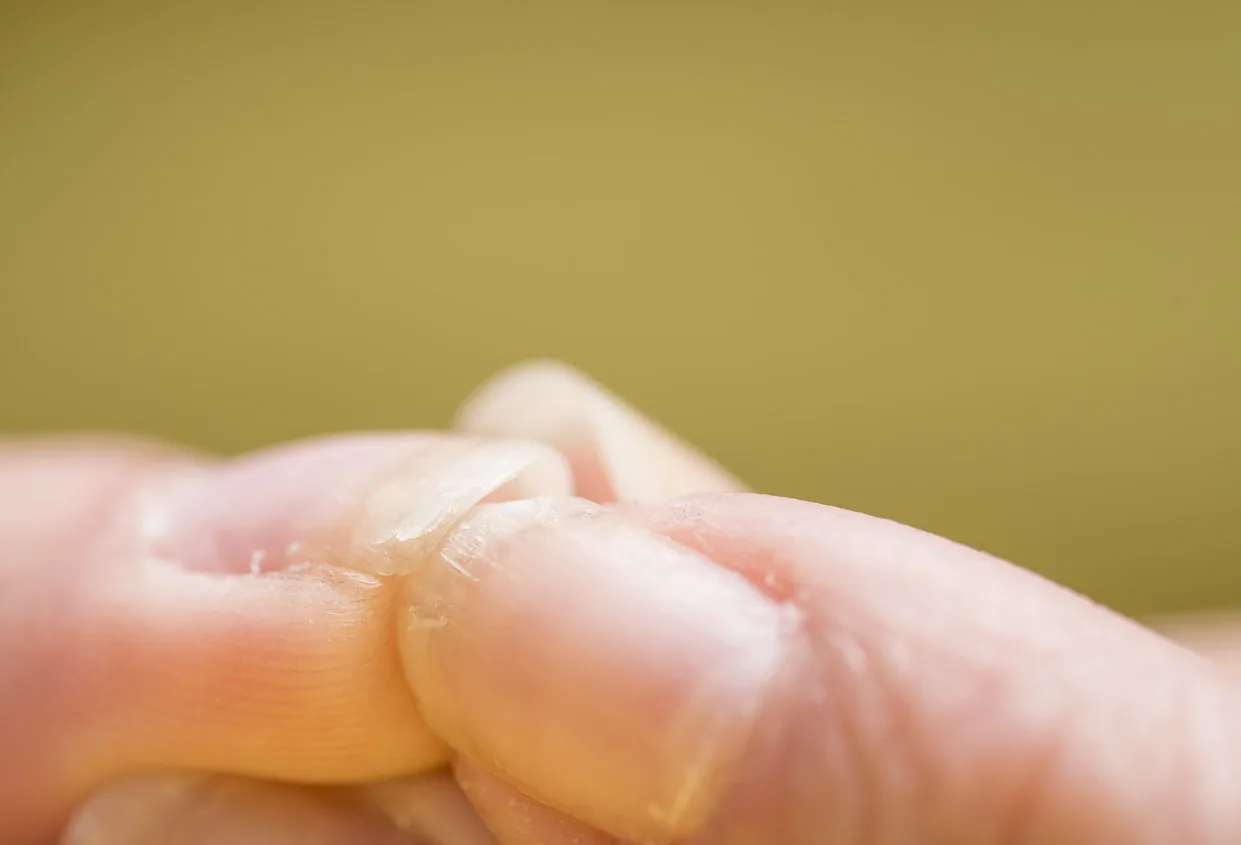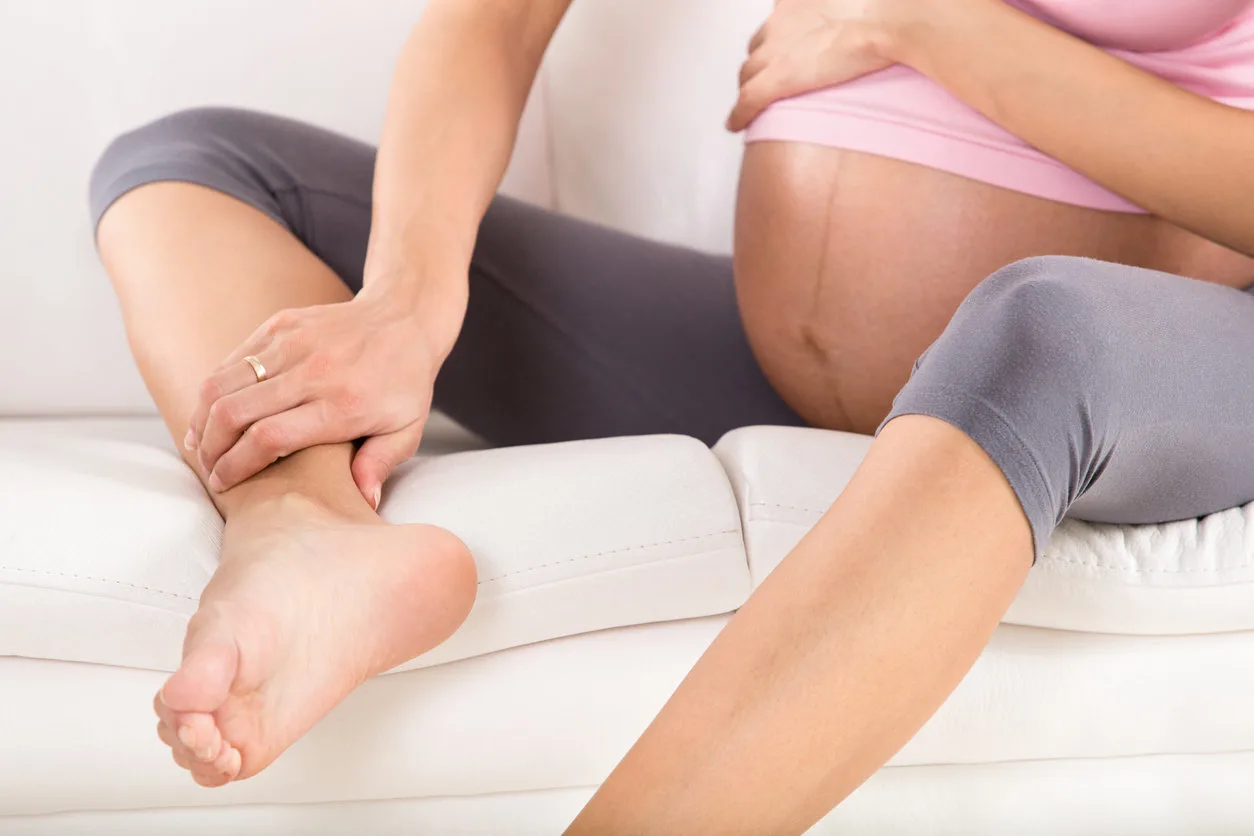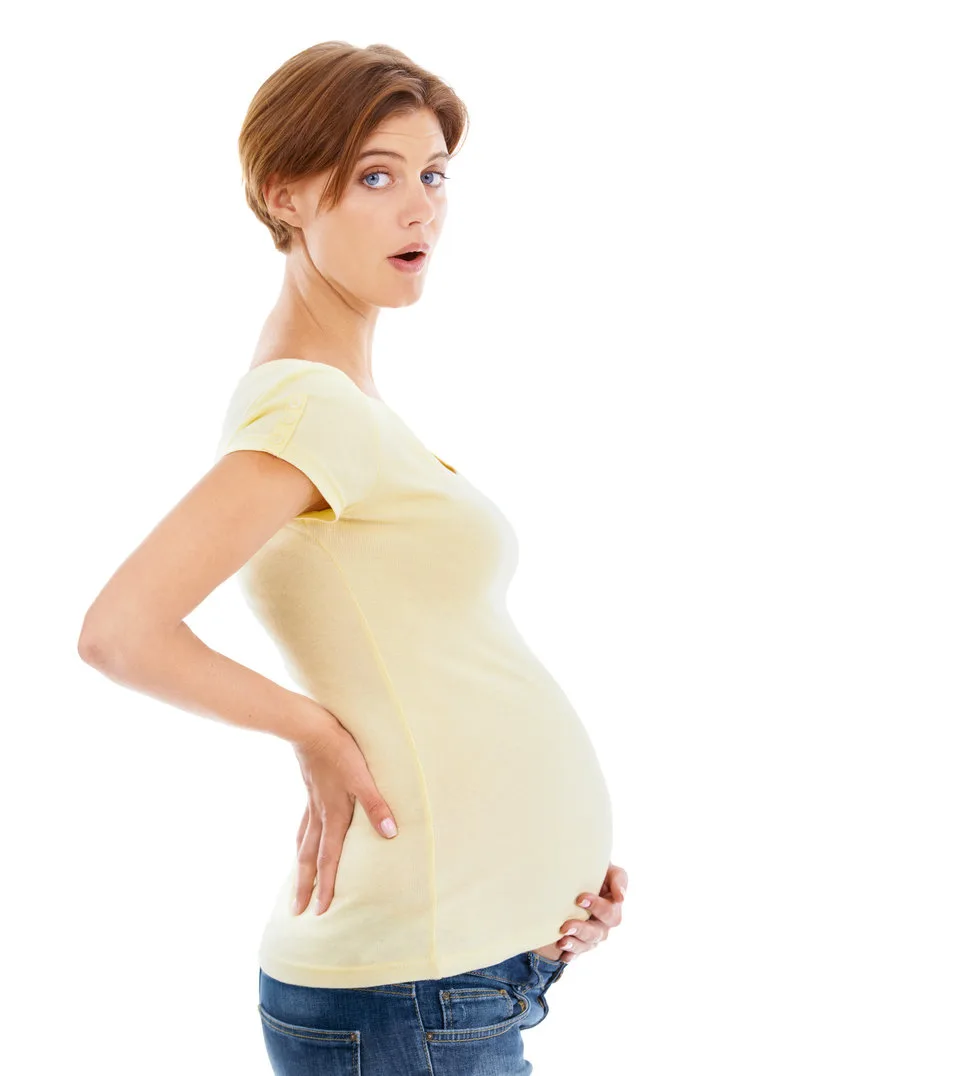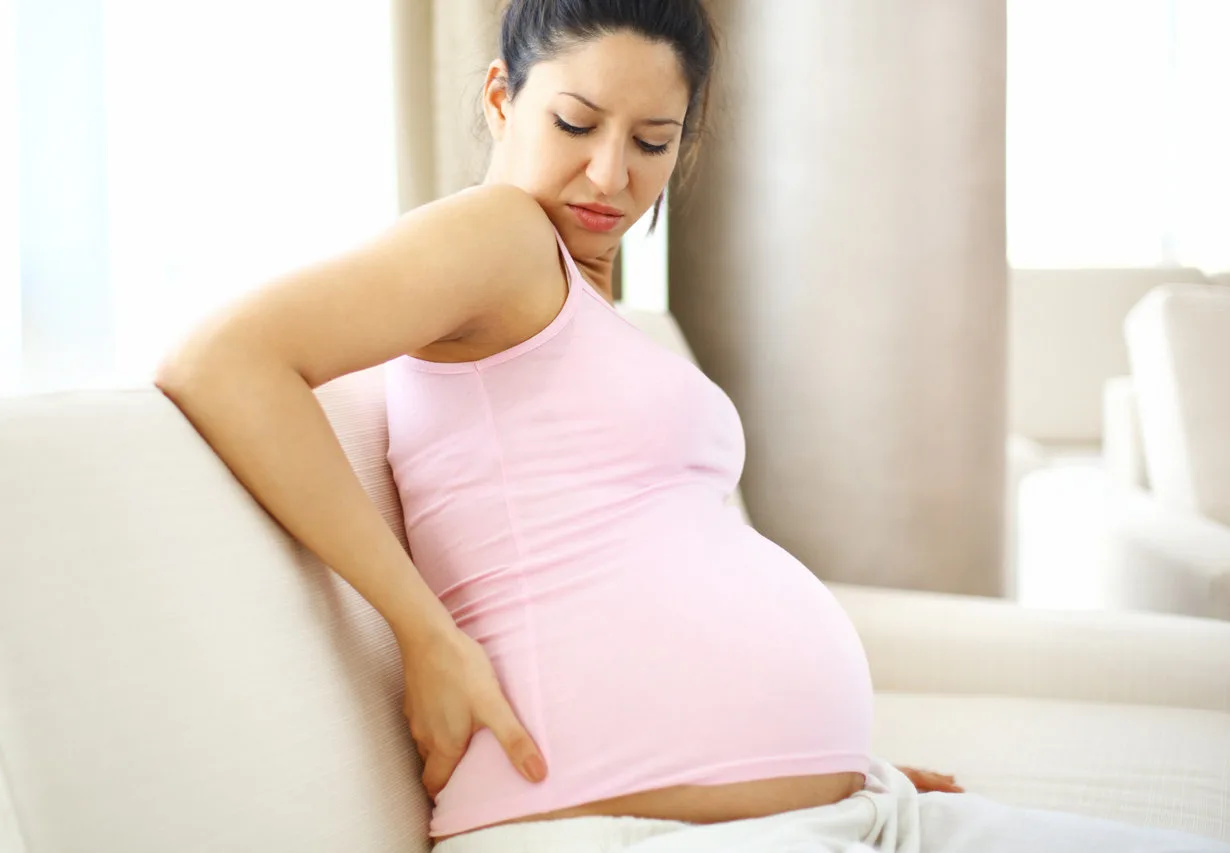50 Pregnancy Symptoms & Discomforts Every Mom-to-Be Should Know About
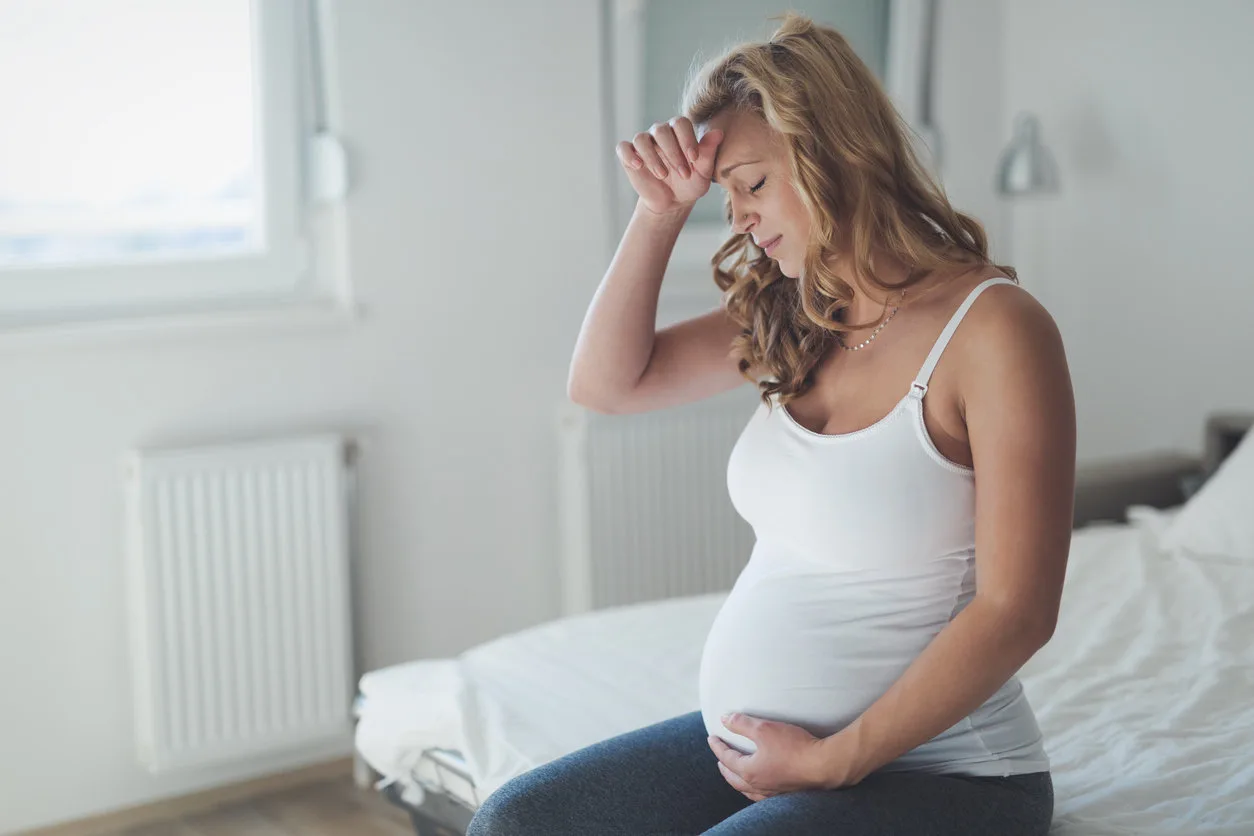 iStock.com/nd3000
iStock.com/nd3000No one said the hardest thing about pregnancy is giving up hot tubs and sushi for nine months. We all know that carrying a baby can come with all kinds of annoying symptoms, like bloating and backaches. And while there are some good things that tend to happen when pregnant -- the elusive glow! thick hair! no period! -- there tend to be more discomforts than joys, mostly thanks to raging hormones, increased blood supply, and weight gain.
Like most things in life, pregnancy symptoms vary from person to person. There are a few lucky moms-to-be who breeze through pregnancy with a slight discomfort or two. Many of us are plagued by a bunch of weird body changes that are slightly freaky but overall manageable. And some have to deal with at least one particularly nagging thing that makes it almost impossible to function (hello severe morning sickness and sciatica!).
Some of these symptoms are notorious (like fatigue and cravings), but others are ones we don't always hear about (vision changes? And how about that discharge? Whoa!).
More from CafeMom: 11 Very Early Pregnancy Symptoms That Aren't Just Our Imaginations Run Wild
It's important for moms-to-be to keep their doctor in the loop about any symptoms they're having. There are many that are just par for the pregnancy course -- like swelling -- but could also be a sign of a complication, so monitoring the situation is key.
Read up on the most common bodily changes that can happen during pregnancy. And hang in there -- all will be worth it when baby arrives!
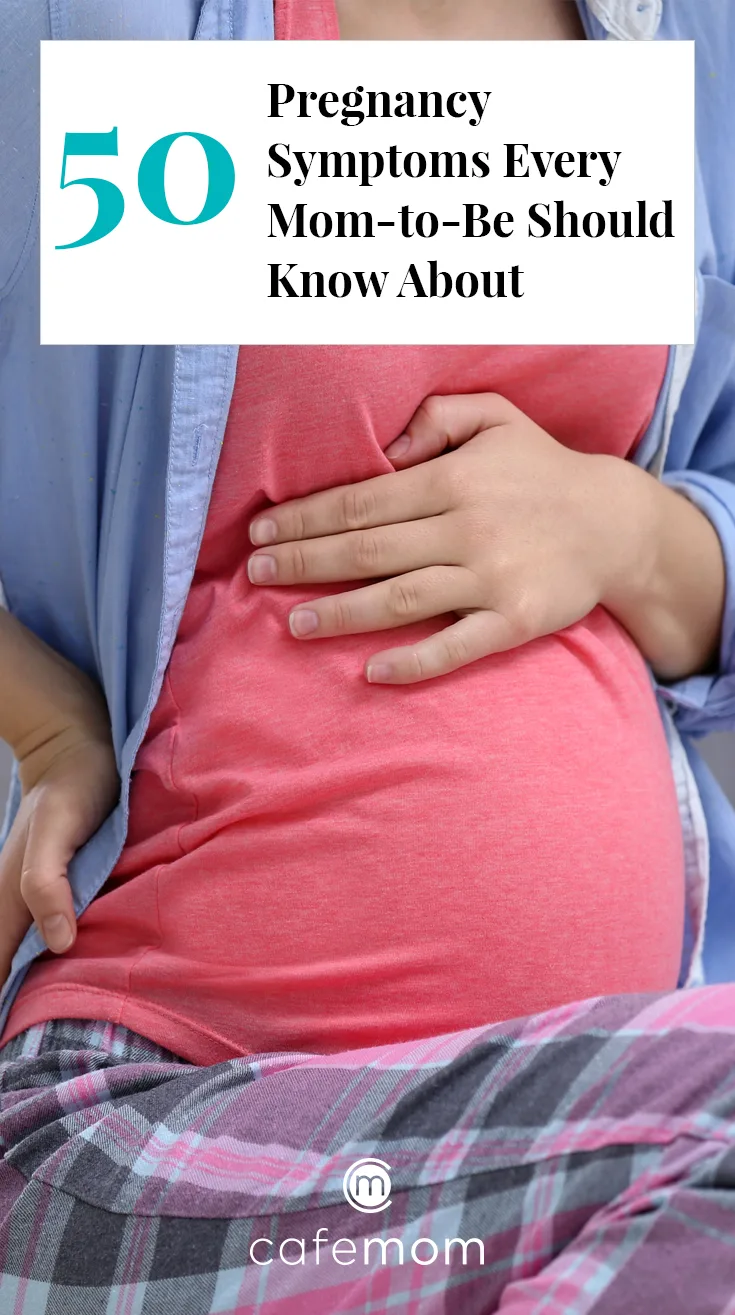
Sore or Tender Breasts
One of the most common early pregnancy signs is breasts that are sore or tender to the touch. Yep, the body may start prepping for breastfeeding as quickly as a week or two after conception -- before she even misses her period. But some moms-to-be don't necessarily notice, since PMS boobs can feel similar.
Mood Swings
Crying at cheesy commercials. Suddenly lashing out at a spouse for something silly. Pregnant woman being moody isn't a stereotype -- it's often a reality. Pregnancy mood swings are usually blamed on the hormone changes going on while making a baby, but stress, fatigue, and dealing with a bunch of other symptoms can certainly make a mom-to-be grumpy too.
Implantation Cramps
Super quick biology lesson: Once a human egg gets fertilized, it has to implant itself into Mom's uterine wall where it will hang out and continue to grow and develop for the rest of the pregnancy. When it implants -- about six to 12 days after conception -- it might cause mild cramps that last a day or two.
More from CafeMom: 15 Short but Chic Baby Names With Big Personalities
Nausea
Possibly the most notorious pregnancy symptom -- morning sickness -- has a misleading name. When we're pregnant, nausea can strike any time of day, usually starting around two to eight weeks after conception and ending around the end of the first trimester. That's a long time to be feeling queasy, let alone puking our guts out.
Fatigue
Who can blame a mom-to-be for feeling exhausted? Making a tiny human takes a lot of energy! Early in pregnancy, fatigue is likely caused by those hard-at-work hormones. Late in pregnancy, hormones are also a factor; plus a woman is carrying extra weight and may be having trouble sleeping at night.
More from CafeMom: 'Don't Steal My Baby Name!': 20 Moms Get Real About Being 'Robbed'
Heightened Sense of Smell
It's not certain why some women's sense of smell gets extra keen during pregnancy, but chances are it's connected to hormones (just like most other symptoms) and nausea. Suddenly, a coworker's perfume or a neighbor's dinner might seem extra stinky.
Food Aversions
Going hand-in-hand with nausea and a ridiculously sensitive sense of smell is food aversions. This is where a woman finds herself disgusted by foods she's normally fine with -- sometimes, even a few of her favorites. Some experts theorize that this is an evolutionary trait that protects the mother and fetus from eating something potentially harmful. Whatever the reason, some moms have food aversions only in the first trimester, and others have repulsions that stick around long after pregnancy.
Cravings
On the flip side, there are pregnancy cravings. Stereotypical ones are ice cream and pickles but women may crave a variety of foods from jalapeños to pineapple to liver and onions. Cravings are par for the pregnancy course, as long as the mom-to-be doesn't find herself craving things that aren't food. In that case, it's a medical condition called pica, and she should tell her doctor right away.
More from CafeMom: 15 Moms Confess the Weirdest Things Their Nesting Instinct Made Them Do
Runny or Stuffy Nose
Sure, it could be a cold, but sometimes pregnant women get stuffy or runny noses just because they're pregnant. There's even a name for the phenomenon: pregnancy rhinitis. Chalk it up to that increased blood volume, which can make the nasal mucus membranes swell.
Frequent Urination
Early in pregnancy, increased blood volume causes the kidneys to process extra fluids, making a woman have to pee more often than usual. Later in pregnancy, the growing baby crowds the bladder, inhibiting its ability to expand, and causing extra trips to the bathroom.
More from CafeMom: 20 Gorgeous but Unusual Baby Girl Names With the Letter X
Vaginal Discharge
That thin, milky discharge has a name: leukorrhea. And some women are shocked by how much of it their body produces during pregnancy. Wearing a panty liner or absorbent underwear helps some women feel more comfortable. It's important to let a doctor know if the discharge is green or yellow or comes with itching or redness; these are signs of infection.
Hemorrhoids
As if constipation wasn't bad enough, all that straining on the toilet can cause uncomfortable (and even painful) hemorrhoids. These swollen rectal veins can also be a result of all that pressure the baby-to-be put on mom's lower half. Clearing up constipation issues can certainly help, as can OTC remedies and a nice sitz bath soak.
Hair Changes
Ever notice how many pregnant women seem to have thicker, more healthy hair? This is one of the few perks of pregnancy! Hair usually sheds gradually but during pregnancy, high levels of estrogen cause hairs to hang on longer, so there are actually more of them at a time. The bad news is, the body will have an adjustment period post-pregnancy, during which many women find their hair falls out a heck of a lot more than usual.
Some women swear their hair texture changes completely during or after pregnancy: straight to wavy, tame to frizzy, or even curly to straight.
Unusual Hair Growth
Chin, back, and even ... butt ... are just a few of the weird places women have told us they suddenly started growing hair during pregnancy. Blame the hormones!
More from CafeMom: The Average Age of First-Time Moms Around the World
Feeling Hot
As we mentioned before (with the sweating), it's normal to feel hot while pregnant. But it's important for a pregnant woman to make efforts to stay well hydrated and cool as much as she can (turn on that air conditioner!), since overheating could be harmful to baby early in pregnancy. Later in pregnancy, dehydration could cause preterm labor.
Excess Drool
Here's an unexpected one! Increased pregnancy hormone levels can also cause an increase in saliva production, making some moms-to-be feel as drooly as the family dog. Some find that it helps (at least temporarily) to chew gum, suck ice, and ... um ... spit a lot.
Sensitive or Bleeding Gums
Expectant women have extra blood flow everywhere -- even their gums -- making swollen or bleeding gums common during pregnancy. Women with sensitive gums may want to switch to a soft-bristled toothbrush. And every mom-to-be should stick with regular dental checkups.
Nipple Changes
Whoa! A pregnant woman's nipples might get bigger and darker. It's probably due to hormones -- and some people believe it's to make them easier for a newborn to spot for those first breastfeeding sessions.
More from CafeMom: 15 Breathtaking Images of Childbirth in All Its Raw, Beautiful Glory
Pregnancy Brain
Over the years, different studies have "disproven" and "proven" the belief that women become more forgetful during pregnancy. But whether or not science says it's true, it's certainly normal to feel more absentminded. From planning for maternity leave, to setting up a nursery, to learning what life will be like with a newborn, expectant mothers certainly have a lot on their minds, making it understandable that they might lose their keys or forget to make a call or two.
Vision Changes
Blurry vision? Fluid changes in the cornea can affect a mom-to-be's eyesight, in which case her vision will go back to normal after her baby is born. It's important a pregnant woman's doctor knows about any vision changes, since some pregnancy complications can affect eyesight as well.
Bigger Feet
Sorry, but bigger feet might not be just due to pregnancy swelling. Around 60 to 70 percent of women's feet grow permanently during pregnancy, according to one study. Use it as an excuse to buy some cute new shoes.
Headaches
A headache during pregnancy could be a sign of hunger, stress, dehydration, fatigue, or caffeine withdrawal. Check with the doctor before taking anything -- rest, food, and water might be all that's needed to feel better -- but many consider acetaminophen (Tylenol) safe for pregnant women.
Lightheadedness
Pregnant women can feel faint -- or can actually faint -- for a variety of reasons. These include low blood sugar, anemia, and the pressure her growing uterus puts on her blood vessels. Lightheadedness is considered normal if it's not accompanied by abdominal pain, bleeding, blurred vision, headaches, or other strange symptoms.
More from CafeMom: 7 Amazing Things Babies Do in the Womb
Linea Nigra
Hormones are probably the cause of the dark line that runs vertically down the middle of many pregnant women's bellies. The linea nigra is Latin for "black line" -- it may start out a shade or two darker than the woman's skin tone and then get gradually darker as pregnancy progresses. It will eventually fade after delivery.
Stretch Marks
Stretch marks are tiny tears under the skin, caused by all that fast stretching happening as a pregnant woman's belly expands. It may be genetics that decide whether a woman gets stretch marks -- but most do! The bad news is they never really go away completely, but they fade quite a bit after pregnancy.
Weight Gain
Obviously, pregnant women should gain weight! A woman's doctor will advise her on the ideal amount of weight for her to gain -- it may be somewhere between 11 and 40 total pounds, depending on her BMI (body mass index) -- and will keep tabs throughout the pregnancy. Gaining weight at a healthy rate helps mom and baby stay healthy, and abnormal weight gain could be a sign of a pregnancy complication.
Braxton-Hicks Contractions
Call it a warm-up for the big game. Braxton-Hicks contractions aren't the same as labor contractions. They're tightening of the uterus that's irregular and infrequent; they can be so subtle a woman might not even notice she's having them. Drinking lots of water, getting enough rest, and changing positions can help prevent or relieve uncomfortable Braxton-Hicks.
More from CafeMom: 16 Kids Who Look Just Like Their Famous Moms Did When They Were Young
Spider Veins
Spider veins -- visible red blood vessels -- may appear because of hormonal changes and the high amount of blood pumping through a woman's body during pregnancy. Little blood traffic jams, spider veins are considered harmless, though sometimes they're uncomfortable. Getting enough exercise and putting up her feet to promote circulation may help get traffic moving again.
Varicose Veins
Not to be confused with spider veins, varicose veins are swollen, sore, and blue. They happen on the lower half of a pregnant woman's body -- usually legs and sometimes vulva, vagina, and rectum (as in hemorrhoids, sorry) -- because of all the pressure the uterus puts on the veins down there.
Swollen Ankles
Women retain more fluid during pregnancy. That, combined with the extra blood flow, can cause ankles to swell. Minor swelling is considered just another side effect of pregnancy, but if it's sudden or severe, it could be a sign of preeclampsia, a dangerous complication.
Snoring
In the third trimester, the trifecta of weight gain, swelling, and nasal congestion can cause a woman to begin snoring in her sleep. It's probably just a pregnancy thing that will go away after delivery, but snoring could cause a few other problems, so it's important anyone sawing logs notifies the doctor.
Hip Pain
The human body is an amazing thing! Hormones naturally relax and soften hip joints and ligaments to prep for baby's delivery. But that amazing change can open up the possibility of hip discomfort, especially now that the mom-to-be's uterus is heavier and her posture has changed.






